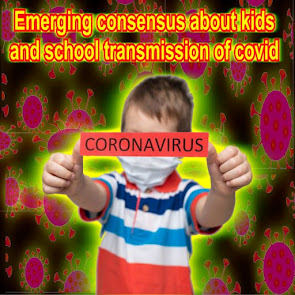PROOF POINTS: The evolving science of how kids contract and spread coronavirus
Emerging consensus that kids are getting and spreading it has implications for schools
In March 2020, as the coronavirus pandemic erupted in the United States, epidemiological reports circulated that children weren’t getting the virus very often and, when they did, their cases were mild. Four months later, in late July, three important public health studies documented that kids do get sick and are transmitting the virus.
What this shift in the scientific literature means for opening up schools is still unclear. Parents and educators are confused because they have to deal with scientific progress in real time. This is still a new virus and scientists are just beginning to understand it.
As an education reporter who covers quantitative research, I began to devour public health studies and try to make sense of them. The first study that caught my attention was on March 16, a day after New York City shut down public schools. The decision in New York was a controversial one. In the second week of March, the city had only a small number of cases and the mayor wanted to keep the schools open. But his public health officials warned about exponential spread. The mayor belatedly acceded to the demands of his health officials and agreed to lockdown the city.
Yet a March 16 study out of South Korea had me wondering if New York had overreacted. South Korea was initially hard hit by the virus, but early on, fewer than 2 percent of its Covid-19 cases were children. A study published in the Journal of Korean Medical Science about the first pediatric case in that country determined that a 10-year-old girl probably got it from her mother and uncle at home, not from schoolmates. She had had a mild pneumonia in February and recovered on her own without special treatment. Nonetheless, the medical scientists who wrote the study argued that Korea’s school closures were “justified.”
By the end of March, school systems around the world had shut down. UNESCO calculated that children were out of school in 193 countries. That’s roughly nine out of 10 students worldwide. CONTINUE READING: Emerging consensus about kids and school transmission of covid


